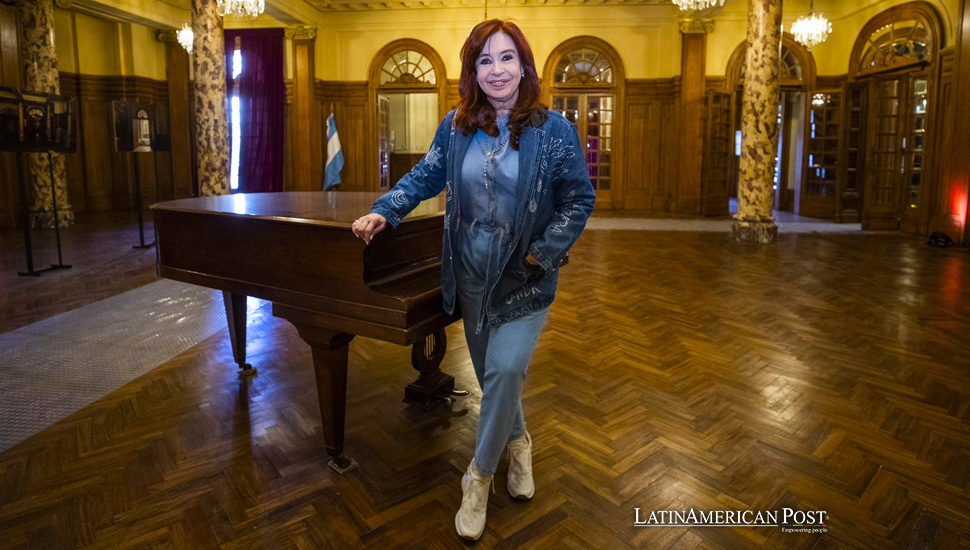Cristina Fernández’s Legacy: Navigating the Maze of Poverty and Blame in Argentina

Amid Argentina’s soaring poverty rates, Cristina Fernández deflects responsibility, igniting debates on leadership and accountability in a nation grappling with economic turmoil—a reflection of broader issues plaguing Latin America.
Understanding Argentina’s Economic Woes
In the intricate tapestry of Argentina’s political and economic history, the threads of responsibility, leadership, and blame are closely intertwined, particularly in the context of the country’s alarming poverty rates. Cristina Fernández, who served as Argentina’s president from 2007 to 2015 and as vice president from 2019 to 2023, recently distanced herself from the nation’s dire economic situation, pointing fingers at her successors while deflecting any blame from her administrations. This narrative, however, deserves a more nuanced examination, especially when placed in the broader context of Latin America’s struggles with poverty, economic mismanagement, and political accountability.
Argentina’s poverty rate has surged to over 57%, a staggering figure that cannot be overlooked or oversimplified. Fernández’s attempt to absolve her tenure of any guilt by blaming right-wing former president Mauricio Macri (2015-2019) and the current ultra-right leader, Javier Milei, for the nation’s woes is a maneuver that warrants scrutiny. Her statement, “We are now worse off than in 2004,” ignores the complex legacy of her policies and their long-term impacts on Argentina’s economy.
Fernández’s reign, part of the two-decade-long Kirchnerist era initiated by her late husband, Néstor Kirchner, was marked by controversial economic policies, including heavy state intervention and protectionism. While these measures initially aimed to foster social inclusion and reduce poverty, they also contributed to fiscal imbalances, inflationary pressures, and a loss of investor confidence. The assertion that the Macri administration’s indebtedness and the return of the IMF were solely responsible for Argentina’s economic backslide oversimplifies the multifaceted economic challenges the country faces.
The Structural Issues Underlying Argentina’s Economic Crisis
The data from the Social Debt Observatory of the Argentine Catholic University (ODSA-UCA) underscores the severity of the situation, with poverty and lack rates reaching their highest levels since records began in 2004. This alarming escalation of poverty underlines the structural issues within Argentina’s economy, problems that predate Macri’s government and have been exacerbated by subsequent administrations, including Fernández’s.
Milei’s presidency, beginning in December with a daunting inheritance of over 200% inflation, highlights the profound economic deterioration Argentina faces. His attribution of the poverty crisis to “the political caste” resonates with a populace disillusioned by decades of political and economic instability. Yet, Milei’s critique also points to a broader problem in Argentine politics: a recurrent cycle of blame-shifting and a lack of substantive policy solutions.
Cristina Fernández’s recent statements and reports, including a 33-page document criticizing the current administration without self-reflection, reveal a deeper issue of political accountability. This issue is not unique to Argentina; it reflects a pattern seen across Latin America, where leaders often prioritize political survival over economic pragmatism.
Countries like Venezuela, Nicaragua, and Brazil have similarly grappled with the consequences of populist policies, corruption, and economic mismanagement, leading to crises of varying magnitudes. In Venezuela, hyperinflation and governance failures under Hugo Chávez and Nicolás Maduro have plunged millions into poverty and spurred a mass exodus. In Nicaragua, Daniel Ortega’s authoritarian grip has stifled economic growth and eroded democratic institutions. Brazil’s recent history, too, has been marked by economic turbulence and political scandals that have challenged the nation’s progress.
The situation in Argentina and Fernández’s role within it underscores the need for a recalibration of political leadership across Latin America. The tendency of leaders to deflect responsibility and engage in partisan blame games only detracts from the urgent need to address structural economic issues, including poverty, inflation, and fiscal instability. It highlights a critical gap in governance: the failure to adopt long-term, sustainable economic policies that transcend political cycles and provide genuine solutions to the populace’s needs.
Shifting the Narrative: From Blame to Accountability
For Argentina, and indeed for Latin America as a whole, the path forward requires a departure from the politics of blame and a move toward accountability, transparency, and policy innovation. Leaders must be willing to confront the complex realities of their nations’ economies, learn from past mistakes, and implement policies that genuinely prioritize the welfare of their citizens over political expediency.
As Argentina grapples with its economic challenges, the legacy of Cristina Fernández and the Kirchnerist era will continue to be a subject of debate. The narrative of victimhood and external blame, however compelling in the realm of politics, fails to account for the nuanced and interconnected factors that have shaped Argentina’s current economic landscape. Only through a candid assessment of past policies, coupled with a commitment to innovative and inclusive economic strategies, can Argentina hope to reverse its course and pave the way for a more prosperous future.
Also read: Argentina’s Poverty Surge to 57.4%: A Reflection of Latin America’s Economic Struggles
In the broader Latin American context, Argentina’s experience serves as a cautionary tale of the dangers of economic mismanagement and political polarization. It underscores the importance of governance that is accountable, sustainable policies, and leadership that is genuinely committed to the well-being of the populace. As nations across the region strive to navigate their own economic and political challenges, the lessons from Argentina’s journey offer valuable insights into the imperative of fostering resilient, inclusive, and democratically accountable societies.





